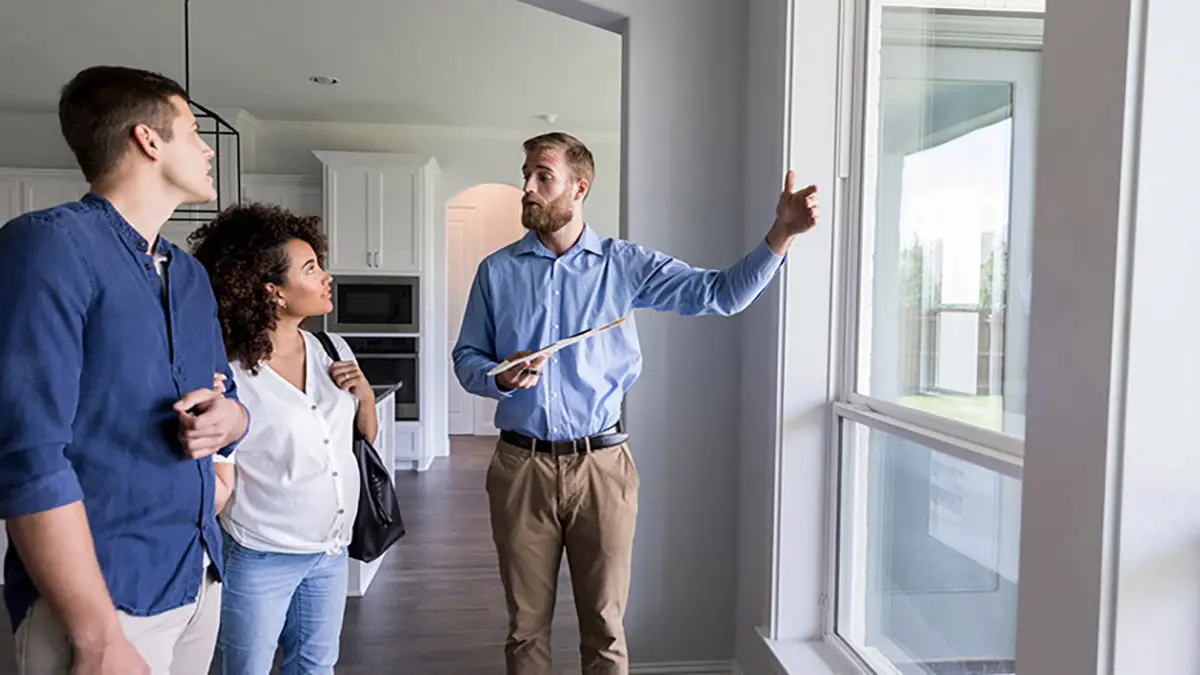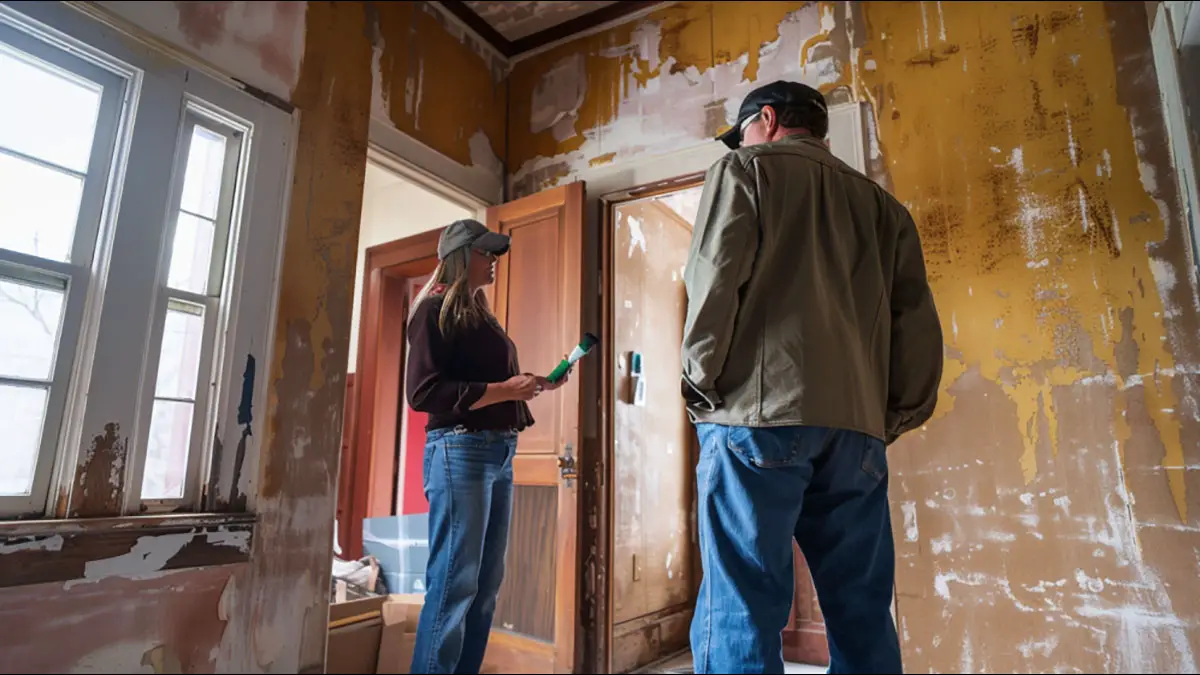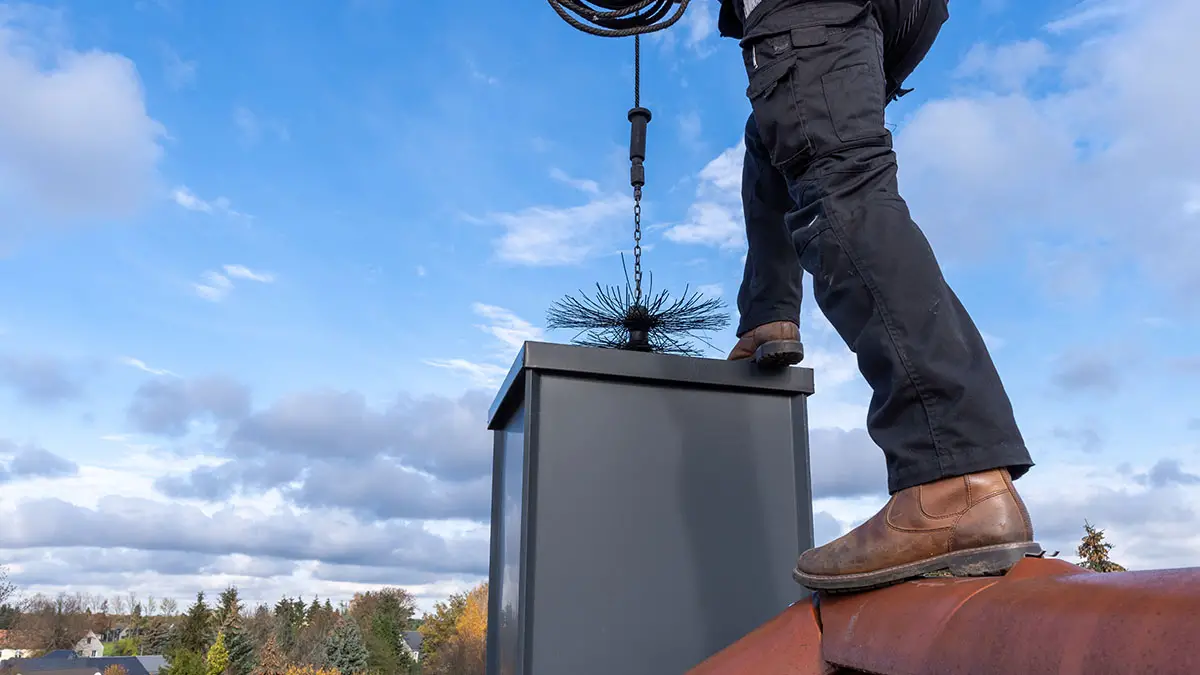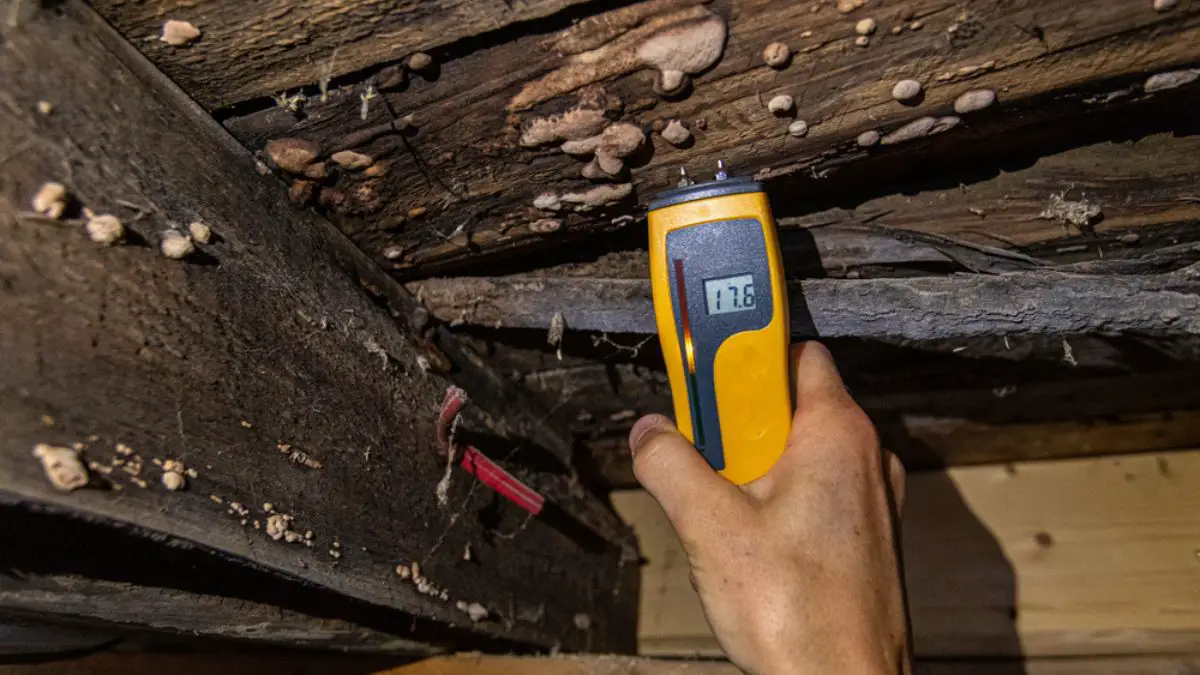Key Takeaways:
- The prospective buyer usually orders their home inspection in a real estate transaction.
- They provide an expert assessment of a home’s condition.
- The results can influence negotiations and final purchase decisions.
When buying a home, it is typically the buyer’s responsibility to order and pay for the home inspection. This process is a critical step in the home purchase, offering the buyer protection from purchasing a property that may require significant repairs or have serious issues.
The home inspection thoroughly examines the property’s condition, including its structural integrity, mechanical systems, and other critical aspects. The buyer, or sometimes the buyer’s agent, hires a home inspector to conduct this examination. The home inspection cost usually falls on the buyer and must be paid out of pocket.
Real estate agents often play a role in coordinating home inspections, but since it’s the buyer who hires the home inspector, the buyer’s preferences typically prevail.
Buyers are also encouraged to attend the home inspection, as it allows them to ask questions and gain a deeper understanding of the property’s condition. If the buyer cannot attend, their agent might attend.
Some areas require the buyer’s agent to attend the home inspection; however, some don’t if the inspector or inspection company is affiliated with the board. Inspection companies affiliated with local real estate boards can access the house through the MLS lockbox with a set appointment.
The home inspection identifies potential issues with the property and serves as a contingency in the purchase contract. This contingency allows the buyer to back out of the purchase without penalty if significant defects are discovered during the inspection.
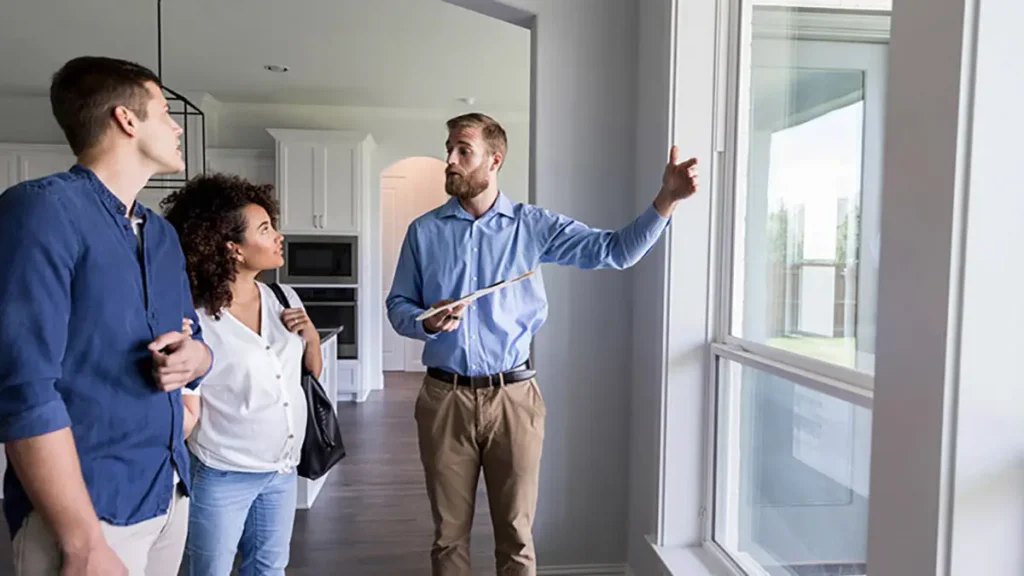
The Importance of Home Inspections
When investing in a home, ordering a home inspection is a critical step in the purchasing process. It is a protective measure to identify potential issues that could influence your buying decision or the price you’re willing to pay.
Understanding the Property
A thorough home inspection gives you an in-depth understanding of the property’s condition. Inspectors evaluate various aspects, including electrical, plumbing, roofing, insulation, and structural features of the home.
Safety
One of the paramount concerns during a home inspection is safety. Inspectors look for violations of building codes that could pose a risk, such as faulty wiring or structural problems, ensuring the home is safe for occupancy.
- Detecting Hidden Defects
- Hidden issues, such as water damage or mold, might not be visible to the untrained eye. Inspectors are skilled in detecting these defects that could potentially lead to major expenses down the line.
Inspection Report
After the inspection, you’ll receive a home inspection report, a valuable document listing all the findings. This report summarises:
- The condition of each inspected component
- Necessary repairs
- Potential problems to monitor
It empowers you with the knowledge to negotiate repairs with the seller, adjust the offer price, or even walk away from the property if the issues are too severe. Remember, the cost of an inspection is minor compared to the potential unforeseen costs of defects and repairs.
Ordering a home inspection is not just a step towards protecting your investment; it’s about your peace of mind. Being informed about the actual condition of your potential home is invaluable.
Key Players in Home Inspections
When navigating the home-buying process, understanding the roles and responsibilities of everyone involved in home inspections is crucial. Managing expectations and responsibilities can significantly influence the outcome of the inspection process.
Role of the Buyer
As a buyer, your involvement in the home inspection process is paramount. It’s your responsibility to include an inspection contingency in your offer, which allows you to negotiate or even back out of the sale based on the inspection findings.
You’re also tasked with hiring a licensed or certified home inspector to assess the property. Moreover, you should discuss with your real estate agent which areas you want scrutinized to ensure your prospective home does not have hidden issues.
Role of the Seller
The seller’s role is mostly responsive regarding home inspections. Upon accepting your offer with an inspection contingency, they must provide access to the property for the home inspector.
Sellers typically make repairs as negotiated post-inspection or adjust the home sale terms to account for any issues the inspector uncovers.
Responsibilities of the Home Inspector
Home inspectors are arguably the centerpiece of this process. They must be thoroughly trained, neutral, and commonly licensed or certified by professional bodies, such as the American Society of Home Inspectors.
Inspectors conduct a detailed inspection of the home and provide a report outlining the property’s current condition and potential issues. The inspector is not responsible for repairs but should give an unbiased assessment to inform your decision-making.
Knowing the key roles each party plays ensures a smoother home inspection process. Your understanding of these roles and clear communication among the buyer, seller, and home inspector contribute to making informed decisions throughout your home purchase.
Understanding the Home Inspection Process
A home inspection is a vital component of the home buying process, ensuring you make an informed decision about your potential purchase. This thorough examination can influence negotiations, the final contract, and your overall understanding of the property’s condition.
Before the Inspection
You must schedule an inspection when you are under contract to buy a home. The buyer arranges the appointment for the home inspection, usually within a window of time stipulated by the agreement inspection contingency period.
Using this opportunity to discover any major issues or safety hazards is essential. Being present during the inspection allows you to ask questions directly to the inspector and understand the context of their findings.
During the Inspection
During the home inspection, a comprehensive evaluation of the property’s condition is conducted using a home inspection checklist. The checklist commonly includes structural elements, electrical systems, plumbing, HVAC, roof, etc.
Pay close attention as the inspector examines the house, as specific findings could lead to negotiations on repairs or the cost of repairs. Taking notes and gathering as much information as possible to aid decision-making after the inspection is beneficial.
After the Inspection
Post-inspection, you will receive an inspection report detailing the findings. Examine this document closely, as it will highlight any issues that need addressing, from minor problems to significant repairs. Use the inspection report as a tool for negotiation.
You can negotiate with the seller to handle the repairs, adjust the purchase price, or offer a credit. This is a strategic step in the home buying process where a clear understanding of the inspection results is crucial for a successful outcome.
Financial Considerations
When buying a home, understanding the financial implications of the home inspection is crucial. You need to be prepared for the initial cost, how it might influence your overall investment, and the terms of your purchase agreement.
Determining Home Inspection Costs
Home inspection costs can vary widely depending on the size and location of the property. Typically, you can expect to pay between $300-$500 for a standard home inspection.
This cost is often out-of-pocket and paid for directly by you, the buyer, at the time of service. Keep in mind this is separate from and in addition to, closing costs, which are a compilation of fees paid after the transaction.
Additionally, specialized inspections for mold or pests can increase the expense. It is essential to budget accordingly for these potential costs and include them when calculating your overall investment in the property.
Impact on the Purchase Agreement
The findings from a home inspection can empower you to negotiate the sale price or request repairs before finalizing the purchase agreement. If major issues are uncovered, you can lower the sale price to account for the cost of repairs, or you may even ask the seller to make the repairs at their expense.
However, be aware that negotiations after an inspection are a delicate matter and hinge on the specific terms of the offer. If you agreed to a “sale as-is,” your ability to negotiate may be limited. Yet, in most cases, the inspection outcome can be a significant bargaining chip in your favor.
Components of a Home Inspected
When buying a home, a thorough inspection is crucial to identify any potential issues with the property. The inspection covers various key components, from the foundation to the roof, ensuring structural integrity and system functionality.
Structural Elements
The foundation and framing of a home are essential to its stability. Your inspector will check for cracks, bowing, and shifts in the foundation. The condition of floors, walls, and ceilings will also be assessed for any signs of warping or water damage that may impact the home’s structure.
Systems and Components
Functional systems are the lifeblood of any home. The inspection includes a detailed review of electrical systems, from the wiring to the service panel and outlets, ensuring everything meets safety standards.
Plumbing will be checked for leaks, proper drainage, and water pressure. Heating, ventilation, and air conditioning (HVAC) systems, such as heat pumps, are inspected for operational efficiency and safety.
Exterior Evaluation
An external inspection includes an examination of the roof, looking for damaged or missing shingles, and evaluating its general condition.
Gutters and downspouts are checked to ensure proper drainage from the house to avoid foundational damage. The siding, windows, and doors are inspected for damage, adequate insulation, and functionality.
The paint and exterior finish are assessed for aesthetic consistency and protection from weather and wear.
Interior Considerations
Inside the home, safety and comfort are paramount. Inspectors review attic spaces for sufficient insulation and proper ventilation. Basements are examined for indications of moisture intrusion or structural concerns.
The inspector will check for issues like peeling paint, which could suggest underlying issues or potential safety hazards like lead. The condition and safety of interior elements, such as stairways and railings, are verified to ensure they are secure and up to code.
All findings will be documented in a home inspection report throughout the inspection, which is crucial for your evaluation of the property and any negotiations.
Common Home Inspection Findings
When purchasing a home, a home inspection is a critical step that can reveal both minor and major issues you should be aware of.
Minor Defects
A home’s minor defects include worn carpeting, dripping faucets, or imperfections in the sink or walls. Although these issues may not require immediate attention, they can lead to potential problems if not addressed over time. You’ll want to note these:
- Cosmetic Flaws: Such as peeling paint, carpet stains, or loose wall tiles.
- Minor Plumbing Issues: Slow drains or dripping faucets.
- Simple Electrical Concerns: These include outlets with no power, failed GFCI outlets, or minor wiring issues.
- Small HVAC Concerns: For example, filters that need replacement or minor ductwork repairs.
Major Concerns
Major concerns can impact the home’s safety, functionality, and overall value. You should prioritize understanding these findings:
- Foundation Issues: Look for cracks or structural shifts affecting the home’s integrity.
- Roof Problems: Missing shingles or leaks can indicate a need for repair or replacement.
- Electrical Panel Hazards: Overloaded panels or outdated wiring can pose significant safety issues.
- Major HVAC System Problems: Inefficient or broken systems can result in costly repairs.
- Chimney Damage: Structural issues or blockages can be a fire hazard.
Remember, addressing these major concerns swiftly ensures your future home is safe and secure.
Follow-Up Actions After Home Inspection
After a home inspection, your next steps are crucial in addressing any issues before you purchase the property. These actions typically involve negotiations for repairs or other concessions and will inform your final decision on moving forward with the contract.
Requesting Repairs or Concessions
Once you’ve received the home inspection report detailing the house’s condition, you should prioritize safety and security-related repairs. Create a list of repairs or issues you find serious or costly.
At this stage, it’s common to negotiate with the sellers to either have them complete the repairs before purchase or provide a credit to cover the costs of the repairs. Remember that negotiations should be made within the time frame set by your purchase contract.
- Review inspection report
- Identify key repairs: focus on safety and security
- Negotiate with sellers: repairs, credits, or price reduction
Making Informed Decisions
Ultimately, the information gathered from the home inspection is a foundation for your decision. Evaluate the cost and extent of repairs. You may withdraw your offer if the sellers are unwilling to negotiate or the house requires extensive repair work.
Conversely, if acceptable terms are agreed upon, you can proceed with more confidence in the condition of your future home.
- Assess the repairs versus property value
- Decide: continue with the purchase, renegotiate, or retract your offer
- Ensure all agreements are recorded in contract amendments
Specialized Inspections and Their Importance
When buying a home, it’s essential to consider specialized inspections beyond the standard home inspection. These additional checks are vital to uncovering specific issues affecting your health, safety, and financial investment, offering a detailed understanding of the property’s condition.
Testing for Radon, Mold, and Termites
Radon: A colorless, odorless gas, radon can pose serious health risks if present in high levels. Testing for radon should be non-negotiable, as prolonged exposure is linked to lung cancer. If radon levels are high, mitigation systems can be installed, which may lead to negotiations on the home price or terms.
Mold: Mold exposure can cause health issues, especially respiratory problems. A professional will sample the air and surfaces in your future home to detect mold spores. Discovering mold can impact negotiations, often resulting in remediation responsibilities for the seller.
Termites: These pests can silently damage the structure of a home. A termite inspection involves examining the property for signs of infestation and damage. Uncovering termite issues early can save you from future costly repairs and become a significant point of negotiation.
Evaluating the Septic System and Wells
Septic System: A faulty septic system can lead to expensive and unpleasant issues. An inspection will assess the system’s condition, including the tank and drainage field. Your real estate agent can help you understand the implications of the inspection findings.
Well: If your prospective home has a well, ensure its water quality and system integrity with a thorough evaluation. Testing water quality for contaminants and the mechanical components provides peace of mind and the basis for further negotiations if problems are identified.
Make sure to coordinate these additional inspections with your real estate agent early in the buying process, as their outcomes can significantly affect your purchase decision.
Legal and Regulatory Considerations
When buying a home, understanding the legal and regulatory context of home inspections is crucial. This ensures that you make informed decisions during the home buying process.
State Laws and Regulations
Each state has specific laws and regulations that address home inspections. These involve licensure requirements for inspectors, standards for the inspection process, and disclosure obligations.
For example, the American Society of Home Inspectors sets forth guidelines many states adopt for their standards. As a buyer, you select a licensed professional to inspect the home you’re interested in. This assures quality in the inspection process and complies with your state’s regulations.
Understanding Inspection Contingencies
An inspection contingency in a real estate contract is a key term that allows you, the buyer, to back out if significant problems are found or negotiate repairs or credits with the seller.
You need to fully grasp the implications of this clause in your offer and understand that once the home is under contract, the inspection contingency period is typically limited.
Carefully read through the contingency clause to know your rights and obligations before you proceed with the home buying process.
Finalizing the Home Purchase
When finalizing the purchase of your home, two critical steps remain: officially closing the deal and planning for future maintenance. Both ensure that your initial investment brings long-term health and security to your living situation.
Closing the Deal
You’re in the home stretch when it comes to closing the deal on a house sale. At this point, your lender will usually require a home inspection report to ensure the property’s condition meets their lending criteria.
Your investment hinges on this document, which can affect the appraisal value. It’s also when you’ll encounter closing costs, which can encompass a range of fees—from loan origination charges to title insurance.
To complete the home sale, you must carefully review all closing documents, ensuring the terms match your agreement.
Prepare for the following typical closing costs:
- Lender’s origination fee
- Title insurance
- Appraisal fee
- Home inspection fee
- Escrow deposit
Planning for Future Maintenance
Post-purchase, your home requires continuous investment in the form of maintenance to retain its value and ensure your safety and comfort.
Prioritize tasks based on the home inspection report, paying particular attention to any issues that could compromise your health or security. Establish a maintenance schedule and budget for foreseeable repairs and replacements.
Recommended maintenance planning actions:
- Review the home inspection report for immediate concerns
- Create a yearly maintenance calendar
- Set aside funds monthly for future repairs
By meticulously following these procedures, you’ll safeguard your investment and enjoy a sense of accomplishment in your new home.
Additional Considerations for Home Buyers
When buying a house, it’s vital to consider the long-term investment value and understand the security a
Assessing Long-Term Investment Value
Your primary focus should be on the investment potential of the property. Look beyond the current value by considering future real estate market trends. Ask yourself questions like:
- How is the neighborhood expected to evolve?
- Are there any planned developments that could increase the property’s value?
- What is the historical appreciation rate in this location?
A real estate agent can provide insights and data to help you evaluate the investment aspect. Before finalizing your purchase, review the home inspection report carefully for any issues affecting the home’s value in the long run.
The Role of Home Warranties
A
- Systems like HVAC, plumbing, and electrical
- Appliances such as the refrigerator, oven, and dishwasher
Consider a warranty as a buffer for your security in financial planning, as some repairs can be costly. However, conducting a thorough home inspection beforehand is important to ensure safety and negotiate any necessary repairs before the sale.
Remember, the steps you take now in negotiations and ensuring due diligence will impact your enjoyment and the security of your home in the future.
Frequently Asked Questions
Who pays for the home inspection during the purchasing process?
As the buyer, you will typically cover the cost of the home inspection. This out-of-pocket expense isn’t included in the home’s closing costs or purchase price.
Is attendance by the seller mandatory at a home inspection?
No, the seller is not required to be present at the home inspection. It is often more beneficial for buyers to attend the inspection without the seller to discuss findings with the inspector freely.
Does obtaining a home inspection fall under the buyer’s responsibilities?
Yes, arranging and paying for a home inspection is usually your responsibility as the buyer. It’s essential to assess the home’s condition before finalizing the purchase.
Are home inspections required to secure a mortgage?
Home inspections are not mandatory to secure a mortgage. However, your lender will likely require a separate property appraisal to determine the home’s value for the loan.
What is the difference between a home inspection and an appraisal?
A home inspection thoroughly examines a property’s condition, while an appraisal assesses the property’s market value. Inspections focus on issues that might need repairing, while appraisals are for lending purposes.



